The 2009 Van Cliburn International Piano Competition ended with a flourish — the crowning of a co-champion with a compelling life story, the filming of a documentary that would find distribution in movie theaters nationwide, and new technological ground broken in showcasing the competition for a global audience. In those palmy days, it seemed nothing could touch Fort Worth’s cultural crown jewel.
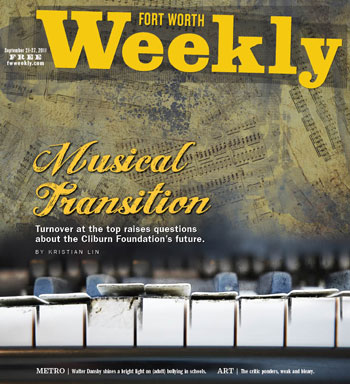 Since then, there has been a great deal of turnover in the management of the Van Cliburn Foundation, which administers the competition. Top officials have suddenly left their posts, creating murmurings of confusion among the competition’s longtime observers. Since 2009, the foundation has lost its chief operating officer, marketing director, general manager, publicity director, and finance director. Former staffers tell stories of a backbiting corporate culture that drove away both longtime employees and new hires. Those staffers would not go on the record, and one expressed the fear that the foundation’s lawyers would file nuisance lawsuits against them. They did, however, agree that the problems at the Cliburn are not solved and will flare up again.
Since then, there has been a great deal of turnover in the management of the Van Cliburn Foundation, which administers the competition. Top officials have suddenly left their posts, creating murmurings of confusion among the competition’s longtime observers. Since 2009, the foundation has lost its chief operating officer, marketing director, general manager, publicity director, and finance director. Former staffers tell stories of a backbiting corporate culture that drove away both longtime employees and new hires. Those staffers would not go on the record, and one expressed the fear that the foundation’s lawyers would file nuisance lawsuits against them. They did, however, agree that the problems at the Cliburn are not solved and will flare up again.
Their accounts differ sharply from those of the Cliburn’s new managers, many of whom have in fact been with the organization for a long time. The foundation’s current leaders maintain that the transition has been seamless and that both next year’s festivities (celebrating the 50th anniversary of the competition) and the 2013 competition itself will go ahead as scheduled. Outward appearances indicate that business is on track. Still, a closer look at the organization raises questions about its future.
In addition to the world-famous quadrennial piano competition, the foundation runs three other major programs: the Cliburn Concert Series, which attracts the world’s best classical music instrumentalists and singers to perform at Bass Hall every year; the International Piano Competition for Outstanding Amateurs; and a children’s education program called Musical Awakenings that brings live classical performances to local schools.
However, the professional competition is the main reason that the foundation exists. Cliburn medalists receive recording contracts and concert tours, and gold medalists play their debut recitals at Carnegie Hall. The tournament focuses the attention of the entire classical music world on Fort Worth every four years.
So concern flared in June when David Chambless Worters, the Cliburn Foundation’s president and CEO, who had been appointed only six months before, abruptly resigned, effective immediately, at the end of the amateur competition.
“Unfortunately, I don’t have sufficient passion for this,” Worters told reporters at the time. Having served in the same capacity with the North Carolina Symphony for 11 years, Worters hinted that he might leave the classical music business entirely. “This could be a good time to transition to something more flexible, more spontaneous.” Bewildered observers lit up the message boards of local media sites with comments questioning the Cliburn’s hiring practices.
Worters did not respond to repeated phone calls for comment for this story.
The resignation was just the latest in a series of high-level departures in a relatively short period of time. Shortly before the 2009 competition, Jim Fredericks resigned. A former COO of RadioShack, he had joined the Cliburn in late 2007 to serve in that same capacity. His resignation was quickly followed by those of public relations director Sevan Melikyan (after 13 years of experience) and his wife and Cliburn Foundation general manager Maria Guralnik (16 years), to be closer to her family members in upstate New York.
The highest-profile departure, made public during the 2009 piano competition itself, was the retirement of Richard Rodzinski (23 years), the foundation’s president and executive director. Finance director Marcia Garoon (11 years) announced her own retirement shortly afterward, staying on long enough to get the foundation’s finances in order.
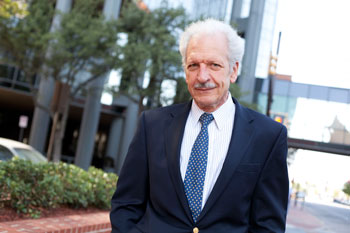 Janice Mayer was hired in August 2009 to direct the Cliburn Foundation’s marketing operations and oversee the career management of the competition’s medalists. Another administrative veteran well-known to classical music’s luminaries, Mayer brought years of experience from The Metropolitan Opera, Columbia Artists Management (a talent agency), and the nonprofit group Classical Action: Performing Arts Against AIDS. Yet she also quit six months after getting hired. Foundation managers described the parting as amicable, but Mayer’s comments to the Star-Telegram indicated otherwise.
Janice Mayer was hired in August 2009 to direct the Cliburn Foundation’s marketing operations and oversee the career management of the competition’s medalists. Another administrative veteran well-known to classical music’s luminaries, Mayer brought years of experience from The Metropolitan Opera, Columbia Artists Management (a talent agency), and the nonprofit group Classical Action: Performing Arts Against AIDS. Yet she also quit six months after getting hired. Foundation managers described the parting as amicable, but Mayer’s comments to the Star-Telegram indicated otherwise.
“I’ve never been through anything like this before in my life,” she said. Mayer said she was seeking legal counsel and declined to make further comment.
Reached by phone in New York earlier this month, she would only say that a settlement between her and the Cliburn had been agreed upon.
For his part, Melikyan would only say that he and his wife “left the Cliburn earlier than we would have liked,” describing his position as “untenable,” but adding, “We wish only the best for the Cliburn.”
Fredericks is now the executive director of the Britt Festivals in Medford, Ore. He speaks easily of his duties at the Cliburn Foundation and describes his tenure as a generally enjoyable experience.
When asked why he left, he demurred. “I’d rather not get into that,” he said, though he did admit to being surprised at the high employee turnover. All those departures, of course, only make the performance of the people now at the top more important.
In the face of all these changes, it’s perhaps no surprise that the Cliburn’s board turned to a veteran to calm the waters. Alann Bedford Sampson chaired the foundation board briefly in the late 1970s before her husband’s death, then took up the post full time in 1994, holding that position until stepping down earlier this year. In addition, after Rodzinski’s retirement, she served as interim president until Worters was hired. Last month, she was asked to take up the interim presidency again.
The Cliburn Foundation’s top management duties have long been divided between the president and chairman, with a few other titles in the mix. Rodzinski was both president and executive director, though the latter title has been done away with since his departure. The chairperson (a volunteer position, with expenses reimbursed) used to be CEO as well, but when Worters was hired, the CEO title shifted over to the presidency. Whether it’s called executive director or president, the top staff position has carried a six-figure salary — Rodzinski’s base compensation was about $250,000. Worters’ salary figures were not available at press time.
During Sampson’s tenure, the chairperson not only headed the board of directors but also coordinated the volunteer force (at 1,200, the largest such force in the classical music world) and oversaw facilities and logistics. Yet after Rodzinski’s departure, she and the board decided to reduce the chairman’s role, handing off duties as well as the CEO title to the incoming president. The consulting firm of McKinsey & Co., working pro bono, helped in the transition. The chair was reduced to an oversight position, less involved with day-to-day operations.
The president tends to the competition’s artistic side, negotiating with the Fort Worth Symphony Orchestra and the guest conductor, recruiting jury members, combing through competitors’ written applications, speaking with pianists’ teachers, setting up screening recitals around the world, and organizing the voting system for the jury. Two years before the next competition, preparations should be well under way.
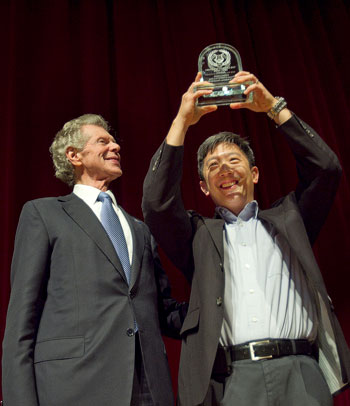 I met with Sampson in the Cliburn’s offices in an outwardly unprepossessing building on the west side of Fort Worth. Her manner is smooth and self-possessed, and her vigor and enthusiasm for the job make her seem much younger than her 70 years.
I met with Sampson in the Cliburn’s offices in an outwardly unprepossessing building on the west side of Fort Worth. Her manner is smooth and self-possessed, and her vigor and enthusiasm for the job make her seem much younger than her 70 years.
“I was taking a taste of retirement,” she said about her recent down time. “I went home and learned to see my house in the daylight. I had some things I wanted to do there.” She described the call she received a few weeks ago from the board as an unexpected development. “They asked me to come in and manage the 50th anniversary and the 14th competition, to keep things rolling.”
Her hiring was the result of a unanimous vote by the board’s 20-odd-member cabinet, led by Carla Kemp Thompson, who was appointed as chair in January after serving as a board member for 12 years. Longtime board member Shannon Ray characterized the board as “incredibly grateful” for Sampson’s return.
Former president and longtime colleague Rodzinski concurred. “The appointment struck me as the only logical thing,” he said. “She’s intimately familiar with what needs to be done when. The learning curve would be steep for someone new.” Even Sampson’s detractors agreed that her assumption of the president’s duties would probably be the best move for the immediate future.
However, those same detractors described Sampson causing dissension among staffers and contributing to a poisonous workplace atmosphere at the foundation. Several other board members did not return phone calls asking about the appointment.
Sampson led the process that led to Worters’ hiring, which took a year and cost more than $117,000, according to 2009 tax records. The process included vetting several consulting firms and selecting one to conduct the search.
She had no comment on the circumstances of Worters’ departure, having been out of the chairmanship at the time.
“We are sorry that it happened, sorry for Mr. Worters and for us. It had to be a disappointment for him,” she said. “We are moving on, not looking back. That’s not to say we aren’t analyzing the process for next time. We want to learn from our mistakes, whatever those are.”
And what lessons from Worters’ hiring could be applied toward the next search? “One thing we’ve probably learned in this business is that a lot of it is word-of-mouth,” she said. “We could work those channels a little better and deeper and make some personal visits.”
The search for a new long-term president will be spearheaded by Thompson, who maintains her full-time job as a senior vice-president of UBS Financial Services. She cited the pressures of that job as the reason she couldn’t grant an in-person interview but agreed to talk by phone. A few days before Sampson’s appointment, Thompson explained that an interim president had to be appointed before a search committee to find a new permanent president could be assembled.
In a follow-up interview last week, she said that a search committee would be formed around the first of the new year. She expects the process to take a year. Both she and Sampson floated the possibility that a new permanent president might be hired before the 2013 competition and allowed to serve an apprenticeship, “shadowing” Sampson as she performs the president’s duties during the competition. Sampson would then cede control to the replacement after the competition was done.
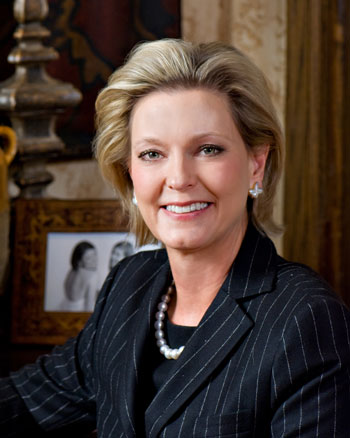 “This is not my chair,” Sampson said, referring to the presidency. “I told the executive committee that I would not get used to my chair in this office.”
“This is not my chair,” Sampson said, referring to the presidency. “I told the executive committee that I would not get used to my chair in this office.”
Guest artists for the 2013 competition — legendary conductor Leonard Slatkin and the up-and-coming Brentano String Quartet — were unveiled last March. The jury members for the screening recitals and the competition are set to be announced within a month. The same goes for the competition’s media partnerships.
Artwork for programs and other uses is in the process of being approved. Screening auditions for the pianists are being arranged. Negotiations with Bass Performance Hall are already complete. (Even though the competition has been held at the venue since 2001, the terms of co-operation are renegotiated every four years to meet new specifications.) The Cliburn’s web site will be updated by the new year.
Asked how she’s doing all this while holding down a full-time job, Thompson deflected the praise onto her staffers and Worters. “This is the best staff we’ve ever had,” she said. “David left everything very well organized.”
She was less forthcoming about why he resigned. “It was not as sudden as it seemed,” she said. “He came to me six weeks before the amateur competition. It was an amicable parting.” She deflected all questions about the factors that led to his decision to leave.
Strangely enough, Thompson pronounced herself happy with the results of the 2009 search that turned up Worters, even though the hiring didn’t work out. Asked what lessons the Cliburn might have learned from the Worters episode that might be applied to a future search, Thompson said she didn’t know.
Ironically enough, Rodzinski is now responsible for reinvigorating the International Tchaikovsky Competition, the only such event with anything like the name recognition that the Cliburn enjoys. A tall and trim man with a lilting, cultured voice, Rodzinski now works out of a small office in downtown Fort Worth that houses his consulting firm, Intermezzo Productions. But he travels to Russia and around the world as part of his duties with the Tchaikovsky.
In June 2009, with that year’s Cliburn Competition still going, Rodzinski received a call from Valery Gergiev, the widely feted Russian orchestra conductor who had been tasked by his country’s government with restoring integrity to the Tchaikovsky.
“He asked for my advice because the Cliburn was known for its transparency,” Rodzinski recalled. Initially brought on as an advisor, Rodzinski eventually took on enough work to be named the competition’s general director. Bringing transparency and other reforms to the Tchaikovsky, Rodzinski said, “was a much bigger job than I had anticipated.”
Indeed, the Tchaikovsky had fallen far in prestige from its inaugural competition in 1958, when Cliburn himself made his name. Since then, the Tchaikovsky had become rife with accusations of favoritism and outright corruption. “We had to separate ourselves from the Moscow Conservatory,” said Rodzinski. “The Tchaikovsky takes place at the conservatory, and there were too many conservatory teachers on the jury, judging their own students.”
Using Gergiev’s name to attract them, Rodzinski assembled a glittering jury composed solely of star performers and composers. He restructured the competition’s voting system, schedule, and field of competitors. He also assembled and trained an entirely new staff, none of whose members had worked on the Tchaikovsky Competition before. All this was done under the scrutiny of a passionate Russian public that saw the competition as a cornerstone of their culture.
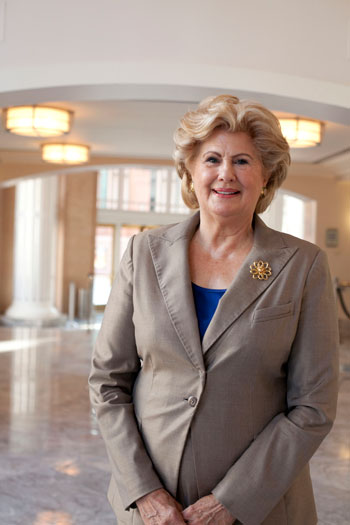 “My first press conference, I was told it would be quick and small,” he said. “I walked into the room, and there were 60 to 80 journalists there, with five TV crews and a bunch of radio stations.” As a crowning touch, Rodzinski brought Van Cliburn himself to Moscow, the pianist’s first visit to the competition since his victory in 1958.
“My first press conference, I was told it would be quick and small,” he said. “I walked into the room, and there were 60 to 80 journalists there, with five TV crews and a bunch of radio stations.” As a crowning touch, Rodzinski brought Van Cliburn himself to Moscow, the pianist’s first visit to the competition since his victory in 1958.
Cliburn was greeted rapturously, but the press was even warmer toward the reforms enacted by Gergiev and Rodzinski. The pair had “made the 14th Tchaikovsky Competition a model of what such contests should be,” blogged the famously cranky classical music critic Norman Lebrecht. “Indeed, it’s unlikely music competitions will ever be the same again.”
You might think that Cliburn officials would be jealous of the acclaim or regretful over losing Rodzinski to a rival competition. However, Sampson said the reform of the Russian organization is something Cliburn leaders had been working toward. “We’re better off because of the strength of the Tchaikovsky,” she said.
The Cliburn itself will have to adapt, and perhaps grow stronger, when a new permanent president is eventually brought on. In the meantime, there is the music. The 2011-12 Cliburn Concert Series began last week with a performance by Conrad Tao, stepping in for the ill Louis Lortie.
“He was in rehearsals selecting which piano to use,” said Sampson. “When I heard the first chords, it just plucked something deep inside of me. I knew this was where I should be.”











